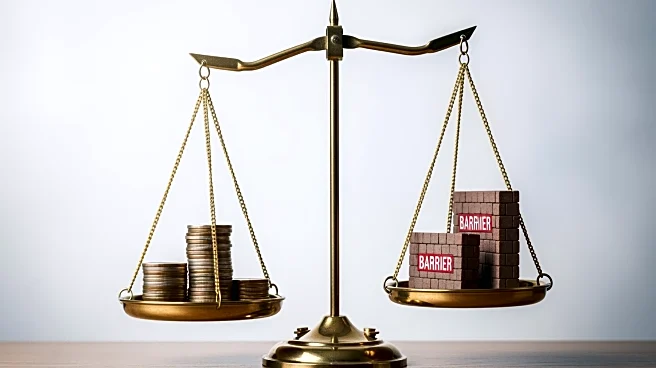What's Happening?
The Supreme Court is preparing to hear arguments on the constitutionality of President Trump's tariffs, imposed under the International Emergency Economic Powers Act (IEEPA). This legal challenge questions
whether the president has overstepped his authority by imposing tariffs without congressional approval. The case comes at a time when Trump's economic policies face criticism, with his approval ratings on economic management notably low.
Why It's Important?
A ruling against the tariffs could lead to a reduction in trade barriers, potentially boosting international trade and alleviating inflationary pressures. This could improve economic conditions and consumer sentiment, which have been affected by the uncertainty surrounding trade policies. Conversely, a decision upholding the tariffs could embolden the administration to continue using such measures, impacting global trade dynamics and domestic economic stability.
What's Next?
The Supreme Court's ruling will be pivotal in determining the future of U.S. trade policy. If the court invalidates the tariffs, it could lead to a shift in economic strategy and potentially improve President Trump's standing on economic issues. Businesses and policymakers will be closely monitoring the outcome to assess its impact on trade relations and economic planning.









